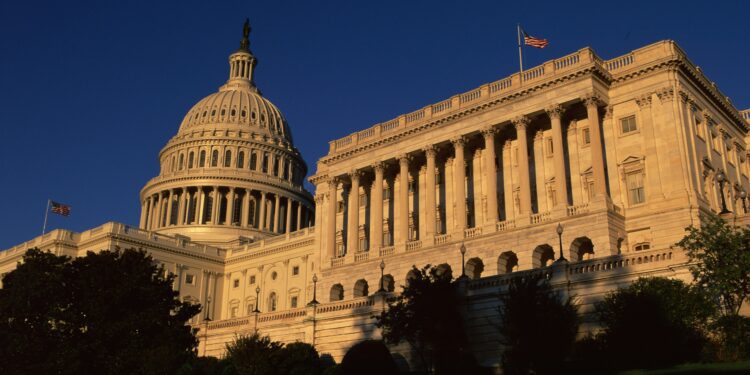During his recent State of the Union Address, President Joe Biden assured the nation of continued commitment towards addressing key concerns such as prescription drug costs, insurance coverage, and accessibility to reproductive care. As we approach another presidential election in the coming months, the administration remains steadfast in touting its advancements for issues like American healthcare expenses and abortion rights.
Biden also articulately engaged with potential voters who might be instrumental in propelling his office towards successful policy implementations.
“When reproductive freedom was on the ballot, we won in 2022 and 2020—and we’ll win again in 2024”.
As has been previewed in fact sheets and preceding communiques leading up to Thursday evening, President Biden has implored Congress to expand on the Inflation Reduction Act (IRA). He suggests intensifying the scope of Medicare drug price negotiations by extending it to a larger number of products.
Unlike the present restriction which allows negotiations for 20 drugs per annum, President Biden is seeking legislative approval to negotiate prices for an annual total of 50 drugs; this equates approximately to “500 distinct pharmaceuticals over the forthcoming decade,” as he expressed.
President Biden also proposed an expansion of a provision stipulating a $2,000 cap limit on out-of-pocket expenses for prescription medication under Medicare: set for initiation in 2025. His suggestion entails that this provision be extended universally across all private insurance providers.
According to the provided fact sheets, there is an initiated effort for a corresponding expansion of a particular IRA prerequisite – which mandates that pharmaceutical companies provide Medicare with rebates when specific drug price augmentations surpass inflation – into the commercial marketplace. This objective was highlighted in recent discourse through advocating for the application of Medicare’s $35 monthly insulin ceiling to all Americans.
Earnings remain considerable within the pharmaceutical industry and will still pose substantial profitability even with these changes, remarked the president. He further reinforced that such pricing regulations would not only serve public health by preserving lives but also put cash back into taxpayers’ pockets, estimating savings around $200 billion.
President Biden has expressed his concern towards the relentless efforts of his political adversaries to undermine the Affordable Care Act and its provisions safeguarding medical coverage for individuals with pre-existing conditions. The President emphasized that maintaining “Obamacare” is a significant priority, reiterating his administration’s objective to not only preserve this critical healthcare legislation but to expand upon it. This includes extending the current $600 per individual Annual Premium Tax Credit, which is set to lapse next year.
Although not explicitly mentioned in his address, additional information from President Biden’s office indicates he is urging Congress to offer “Medicaid-like coverage” for residents living in states that have yet chosen not adopt Medicaid expansion initiatives.
The Administration also seeks support on fortifying comprehensive access to mental health care services. They are currently finalizing regulations aiming at equitable inclusion within health plan coverages; enhancing accessibility of home care for Medicaid recipients; and applying out-of-network billing limitations initiated by the No Surprises Act onto ground ambulance providers who are presently exempted from such constraints.
The pivotal focus of the address delivered that evening was the accessibility to reproductive healthcare services. Commencing his speech, President Biden emotionally relayed accounts from some guests present at the event who had faced personal upheaval due to state limitations on abortion and in vitro fertilizations procedures. In specific reference to IVF, he passionately implored Republican legislators to cease their delay in recognizing this right at a national level.
Additionally, President Biden drew attention to a series of concerning statewide legislations that not only outlaw freedom of choice but also penalize medical professionals and compel victims of both rape and incest further into duress by forcing them relocate out-of-state for necessary treatment. The gravity of his declaration was underscored when he addressed Supreme Court justices present about their controversial verdict regarding Roe v. Wade case with poise.
Furthermore, he implied caution towards conservative agendas pushing for nationwide prohibition on reproductive autonomy as it may set precedence leading towards erosion of other individual liberties.
President Biden’s administration emphasized its endeavors in maintaining regulatory authorizations and ensuring access to medication abortion. It also reinforced that protections under the Emergency Medical Treatment and Labor Act encapsulate emergency abortion care while safeguarding the confidentiality of individuals involved with reproductive healthcare.
The President portrayed his government as a stalwart ally for American consumers throughout his speech, positioning itself against monetary exploitations by corporations. This angle was also extended towards pharmaceutical companies affected by industrial regulations.
President Biden has formerly acclaimed his department’s investigations into determining the influence that intermediaries – such as pharmacy benefit managers, group purchasing organizations, and drug wholesalers – exert on pricing structures and product availability. His office underscores achievements concerning anti-competition within the health sector alongside their ongoing efforts in curbing uncompetitive mergers and acquisitions—a testimony to their commitment for maintaining fair market practices.















